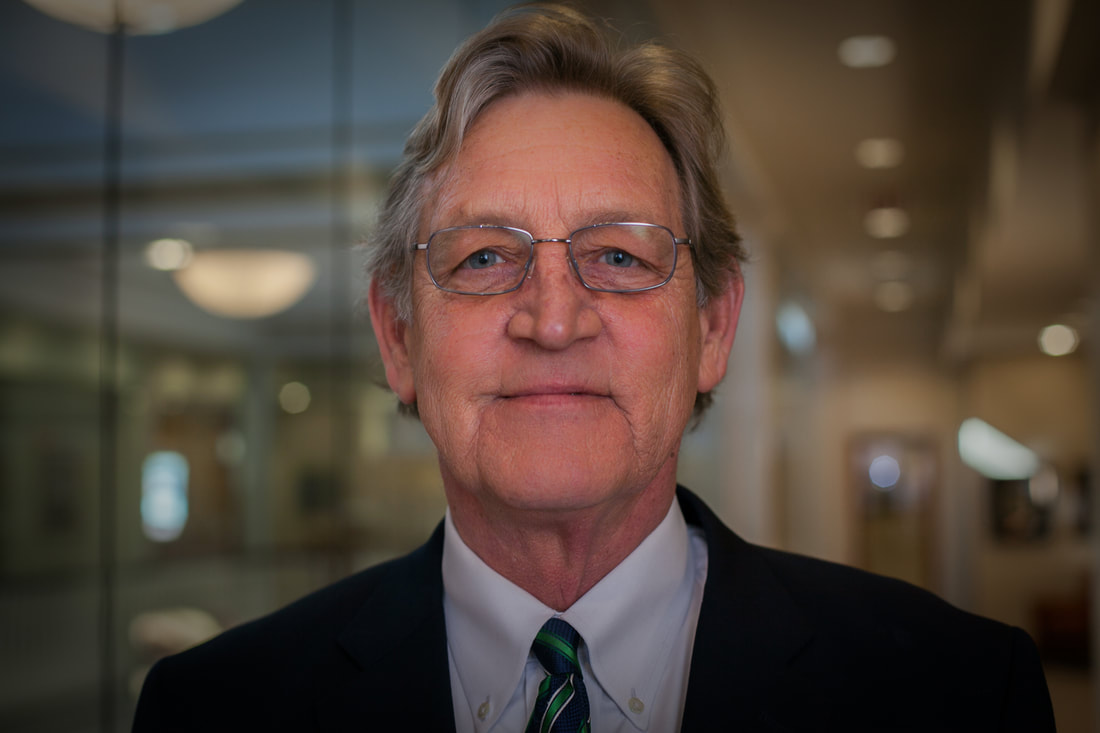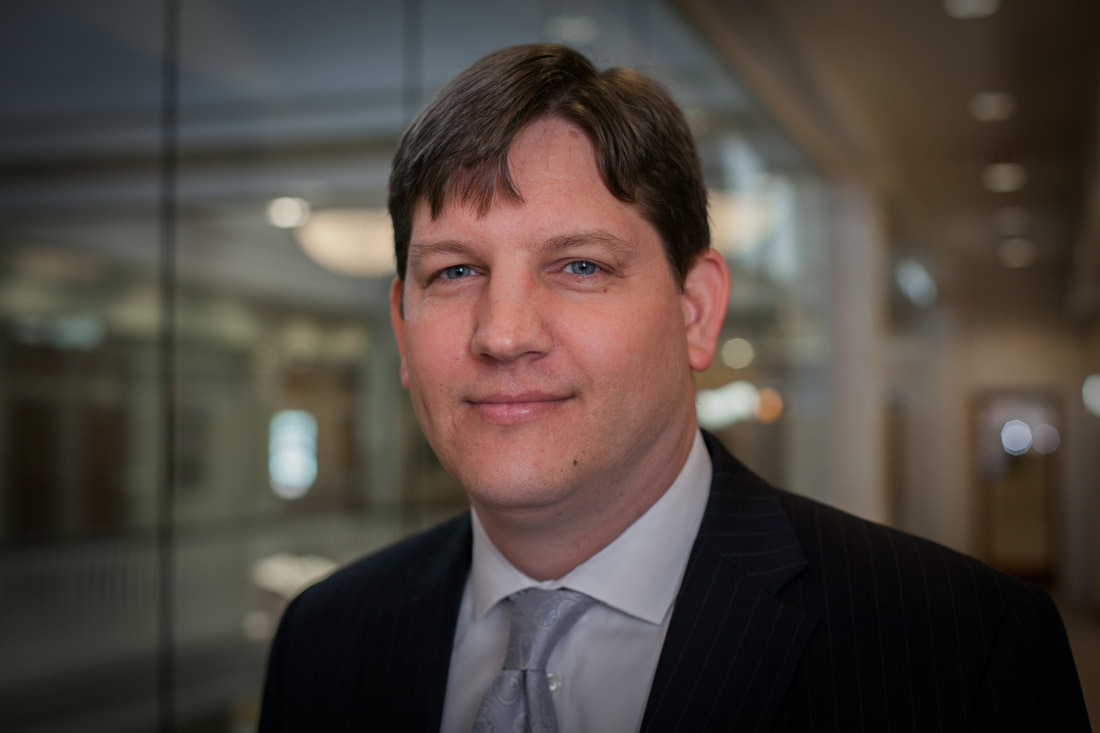|
Over the last few years, the financial news, whether you hear it on the radio, see it on the television, or read it in the paper or on the web, is so pessimistic. You would think that all of us, throughout the world, are doomed and anyone who believes in a brighter future for themselves or their family are just dreamers. Well, I am here to tell you that there are a few of us that still wake up in the morning and believe that today and tomorrow people will find a way to improve their lives and drag the rest of us along for the ride. As many of you know, I am one of those optimists. Finding other optimists that share my views on the future, especially when it comes to investing, is becoming harder with each passing year. Recently, I found one of those rare individuals down in Kingwood, Texas, a suburb of Houston. It just so happens that Clark Blackman is a fellow CFA who began his investment career about the same time as I did— over 30 years ago.
He recently wrote an article that I enjoyed, not only for its content, but also because of the optimism he shares. After a short conversation with Clark he generously gave me permission to share it with you. Until next time, Kendall J. Anderson, CFA __________________ The Case for Conservative Optimism By Clark M. Blackman II December 18, 2012 “We should never despair. Our situation before has been unpromising and has changed for the better, so I trust it will again. If new difficulties arise, we must only put forth new exertions and proportion our efforts to the exigencies of the times.”– George Washington, to one of his generals, July 1777. These words recently appeared in a Wall Street Journal article that sought to bolster the spirits of conservatives, but Washington’s sentiment should resonate with advisors of all political stripes. The kind of optimism he described is the key to finding success as an investor, as a businessperson, and in life. In my 30-plus years as an advisor, I have seen many "crises" predicted: panic over food shortages and epidemic starvation, trade deficits, the Y2K computer bug, a collapsing real estate market, concerns about “peak oil,” growing U.S. dependence on foreign energy supplies, the collapse of the European economy and banking system, and now the fiscal cliff. Another recent Wall Street Journal article depicted the struggles many individual investors face staying invested in stocks. Many have not returned to the market since the decline in 2008 and have suffered both emotionally and financially by missing the run-up we’ve seen since. Others who have gotten back in have agonized as they watched the market move on a daily basis, worrying they may not get out before the next big crash. For many investors, their happiness and unhappiness hangs on how the market is doing by the day or even by the hour. Investors are struggling with the dangers we face today today, which are causing them to lose sleep, and in many cases running, if not ruining, their lives. They are the ones who most need to recall Washington’s Revolutionary War exhortation. "We should never despair. Our situation before has been unpromising." We no longer lose sleep over most of the crises mentioned above. Mass starvation has been averted, thanks to brilliant people who figured out better ways to grow things. (The most precious resource we have is the human mind and creative spirit, which can never be depleted.) Y2K, too, was a non-event (unless you believe that it led to the tech sector collapse – perhaps everyone spent their 2000 and 2001 technology budgets fixing their Y2K problems in 1999!). The real estate market is on the rebound. While many have suffered financially since the housing bubble collapsed, it has not led to long-term economic upheaval, and people are benefiting today from the lower prices. Cyclical ups and downs come and go, by definition. We are digging ourselves out of this last downturn in spite of all the problems we still face, and many who have "lost" so much will find that, with some patience, they will get it all back – and probably more. That doesn't help the individuals who have lost their homes, of course; but in a free-market economy that provides so much, one can't eliminate the risk that accompanies opportunity. One must attend the other. An improving global economy And there is already good news relating to at least one of the crises will still face. The Wall Street Journal recently noted that there is new faith in Europe's bonds, and bond investors are warming to banks in weaker European economies, including Ireland, Italy and Spain. Not very long ago, those countries were the epicenters of the EU’s supposedly inevitable collapse and worldwide economic disaster that would surely follow. Many will argue that a collapse could still happen. But it isn't going to happen today, and the likelihood it will happen at all has clearly diminished. So let's put our fears of an EU banking system collapse to rest for a day or two, shall we? Progress is being made on the fiscal cliff, as the two battling parties are talking privately and striving for compromise. Cliff or no cliff, the market ramifications will be temporary, once the end result is known. Fears about "peak oil" – the premise that we have hit, or passed, the point of no return when worldwide oil production will dwindle in the face of increasing demand, eventually throwing us back to the stone age – are certainly worrisome, and should not be dismissed out of hand. But those of us here in the Texas "Oil Patch" have seen, for several years now, a remarkable shift in available resources – particularly natural gas, thanks to the brilliance of individual visionaries who have made "fracking" work better than most people imagined it could. But, just as importantly, oil is also being discovered and recovered using new methods in places that were once unthinkable. Even a year ago, it would seem crazy for anyone to claim that the U.S. will be energy self-sufficient and a net exporter of oil and gas in a decade or so. Yet Exxon made just such an announcement on December 11. This is an incredible turn of events for the U.S. economy and the world at large which is not being recognized for what it is – a true harbinger of better things ahead. In his excellent book, The Rational Optimist, Matt Ridley argues that cheap and accessible energy has been the essential ingredient for historical economic growth and prosperity worldwide. (And we’ve already come a long way since that "energy" took the form of slave labor.) By this reading of history, the cheap, abundant, and varied energy sources we have in the U.S. today should virtually assure growth and prosperity going forward, as long as we retain certain fundamental building blocks: free-market capitalism, a predictable and equitable court system, safe and secure borders, political stability, and a growing population. Long-term investors must stay focused on the long term if they are to prosper and be happy. Day-to-day and even year-to-year fluctuations in market prices must be taken in stride. Fretting over the day's bad news, believing predictions of future doom and gloom, and allowing fears of the future to ruin what might otherwise be a lovely day is counterproductive. It is the end of another year. Much to the surprise of many in the media, investors and prognosticators, the S&P 500 and NASDAQ indices are up about 15% in 2012, through November. All the hand-wringing and all the worry and all the stress were for naught. The cynics, the pessimists, the "end of the world as we know it" soothsayers – those people get all the press. They can sound so intelligent, so reasonable – so certain – that it seems like they must possess some "secret knowledge." But – as David Mamet points out in his excellent book, The Secret Knowledge – the only secret knowledge is knowing that there is no such thing. Washington's experience told him that, in the face of despair, the appropriate response is to expect that better days are just around the corner. Why? Was he uninformed or a Pollyanna? Given he may well have been one of the most brilliant strategists ever; we'd be well advised to follow his advice. 2013 will be a new year for all of us. Please enjoy yours. Clark M. Blackman II, MA, CFA, CPA/PFS, CIMA™, CFP™, AIF™ is President/CEO of Alpha Wealth Strategies, LLC, a Kingwood, TX-based advisory firm. Comments are closed.
|
Kendall J. Anderson, CFA, Founder
Justin T. Anderson, President
Categories
All
Archives
April 2024
|
|
Common Sense Investment Management for Intelligent Investors
|



 RSS Feed
RSS Feed